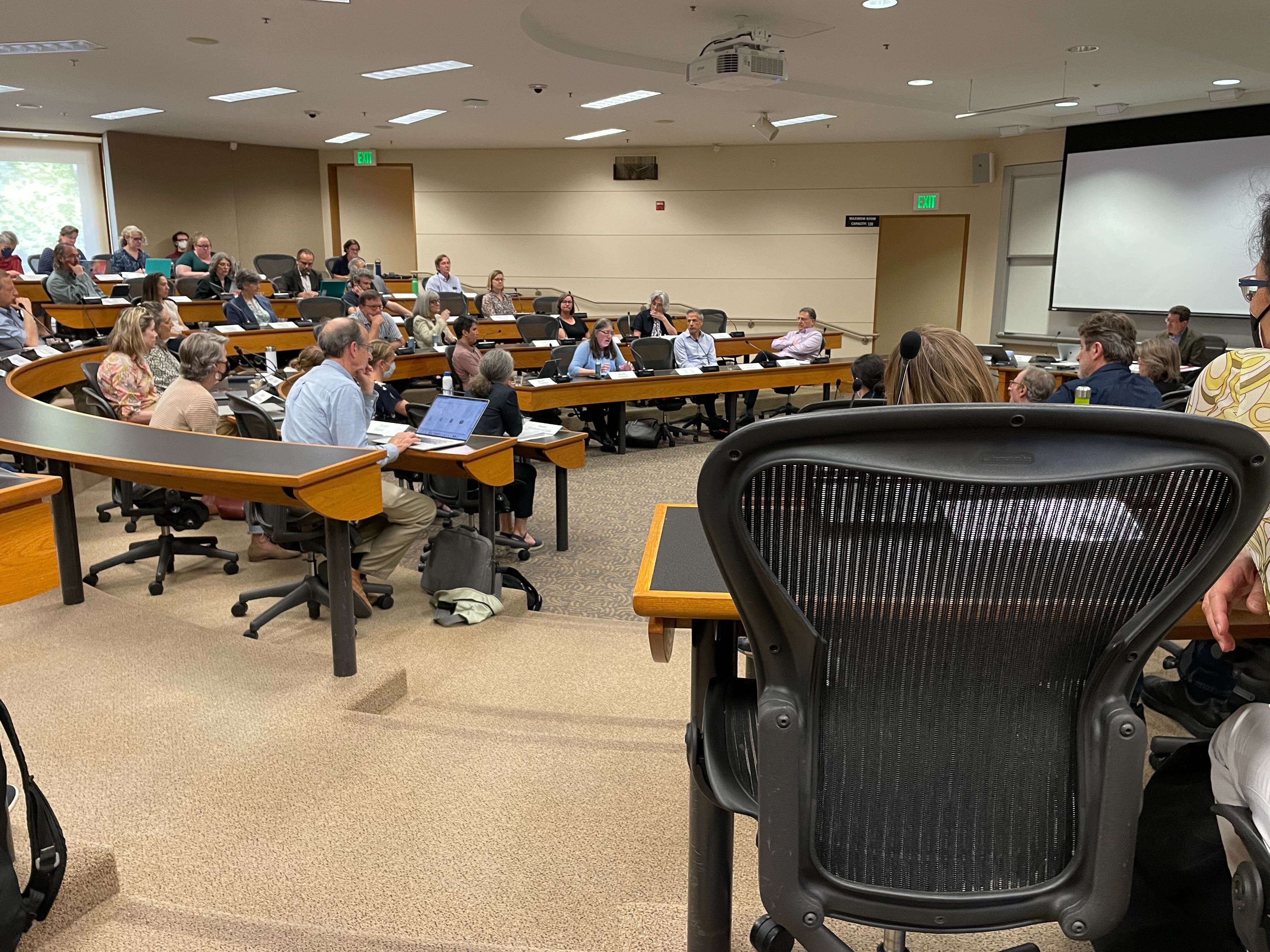On April 28, the Faculty Senate approved changes to the honor code to allow exam proctoring beginning next academic year. The decision overrode objections from the Undergraduate Senate and would allow proctoring at Stanford for the first time since 1921.
The Editorial Board stands against cheating, and we want to acknowledge that Stanford does face a significant problem with cheating among the undergraduate population. We are not going to debate over whether proctoring is the solution; we would need more data to reach that conclusion. Therefore we support the original Academic Integrity Working Group study proposed by the Committee of 12 (C12) that would investigate whether proctoring leads to more positive outcomes than harm.
However, we are very concerned that by bypassing the Undergraduate Senate’s vote, the Faculty Senate is signaling that it no longer believes the student body deserves a voice in this decision, ending 102 years of precedent of shared governance over the Honor Code.
We agree with ASSU Executive President Darryl Thompson that the motion shows a “lack of good faith” between faculty and students. Some faculty may feel that students broke this trust first by breaking the honor code. Even so, the actions of some students should not be an excuse for the Faculty Senate to not engage with undergraduate students whatsoever before overriding the C12’s process for revisions to the Honor Code, which all stakeholders had agreed to.
Both the Undergraduate Senate and the Faculty Senate have several meetings left before the end of the academic year, meaning that there is still plenty of time to engage in conversation. The forcing of this motion is therefore a disrespectful and manipulative attempt to force the Undergraduate Senate to adopt the C12’s Honor Code proposals, which the UGS nearly unanimously opposed.
Academic dishonesty is a deeply-rooted problem that cannot be solved by surface-level revisions. Faculty in support of the motion to override acknowledge this, yet argue that proctoring is a necessary start. Without evidence that proctoring necessarily reduces cheating, or that timed in-person exams are where the majority of cheating happens, we do not believe the need to proctor outweighs the need to incorporate student voices into the decision. The Faculty Senate must deeply reconsider this troubling break from over a century of shared trust.
Moreover, the very act of invoking what VPUE Sarah Church called the “nuclear option” degrades trust between students and faculty. The vetoing of a democratic decision made by the student body, albeit within the powers of the faculty senate, is paternalistic and sets a dangerous precedent for further illiberal decision-making.
We strongly urge the Faculty Senate to reconsider their motion to override, which has disenfranchised undergraduates. The issue of academic integrity can only be effectively addressed cohesively, and we hope that all parties will return to the table to find evidence-based, democratic solutions.
The Editorial Board consists of Opinion columnists, editors and members of the Stanford community. Its views represent the collective views of members of the Editorial Board. It is separate from News.
